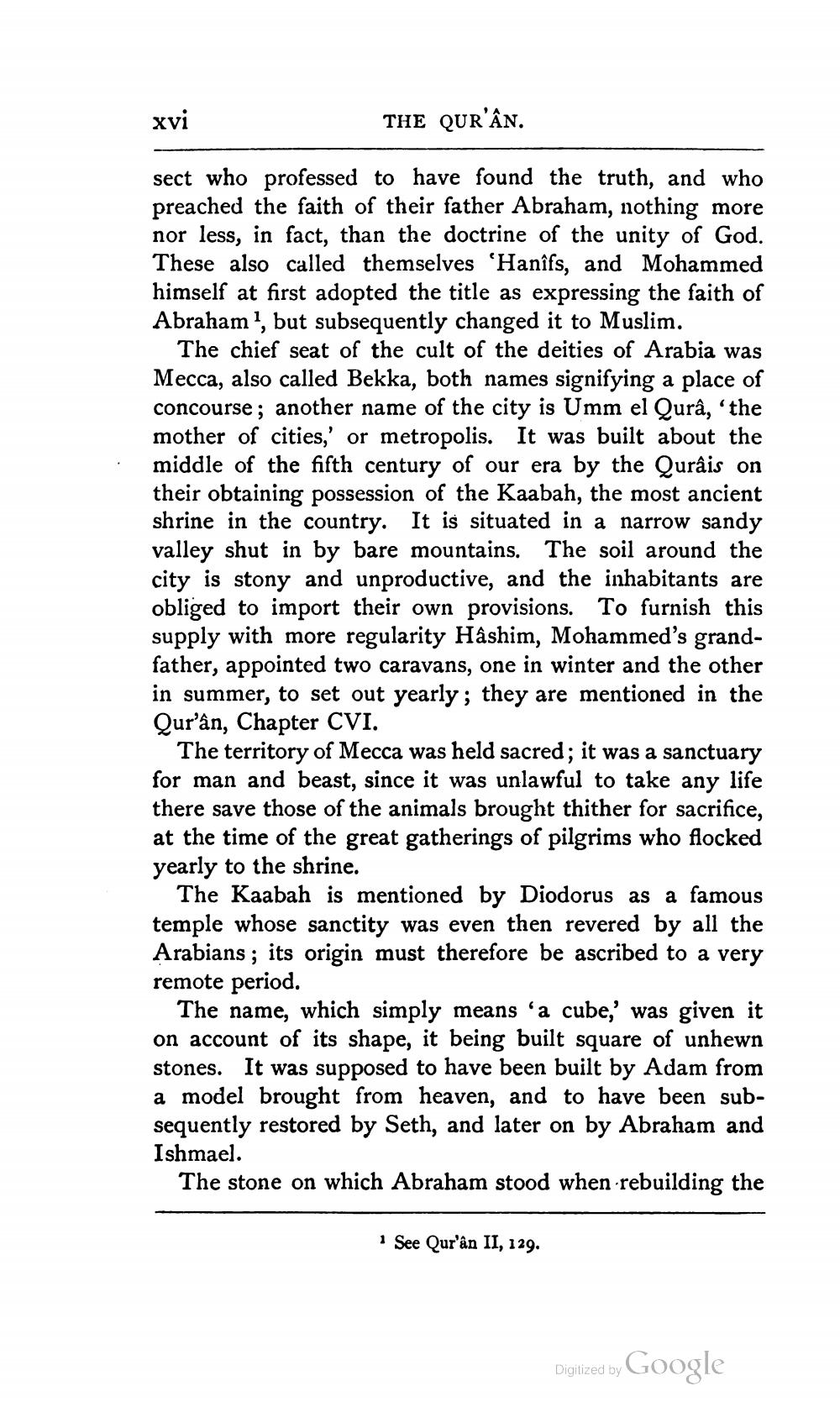________________
xvi
THE QUR'ÂN.
sect who professed to have found the truth, and who preached the faith of their father Abraham, nothing more nor less, in fact, than the doctrine of the unity of God. These also called themselves 'Hanîfs, and Mohammed himself at first adopted the title as expressing the faith of Abraham, but subsequently changed it to Muslim.
The chief seat of the cult of the deities of Arabia was Mecca, also called Bekka, both names signifying a place of concourse; another name of the city is Umm el Qurâ, 'the mother of cities,' or metropolis. It was built about the middle of the fifth century of our era by the Qurâis on their obtaining possession of the Kaabah, the most ancient shrine in the country. It is situated in a narrow sandy valley shut in by bare mountains. The soil around the city is stony and unproductive, and the inhabitants are obliged to import their own provisions. To furnish this supply with more regularity Hashim, Mohammed's grandfather, appointed two caravans, one in winter and the other in summer, to set out yearly; they are mentioned in the Qur'ân, Chapter CVI.
The territory of Mecca was held sacred; it was a sanctuary for man and beast, since it was unlawful to take any life there save those of the animals brought thither for sacrifice, at the time of the great gatherings of pilgrims who flocked yearly to the shrine.
The Kaabah is mentioned by Diodorus as a famous temple whose sanctity was even then revered by all the Arabians; its origin must therefore be ascribed to a very remote period.
The name, which simply means 'a cube,' was given it on account of its shape, it being built square of unhewn stones. It was supposed to have been built by Adam from a model brought from heaven, and to have been subsequently restored by Seth, and later on by Abraham and Ishmael.
The stone on which Abraham stood when rebuilding the
See Qur'ân II, 129.
Digized by Google




